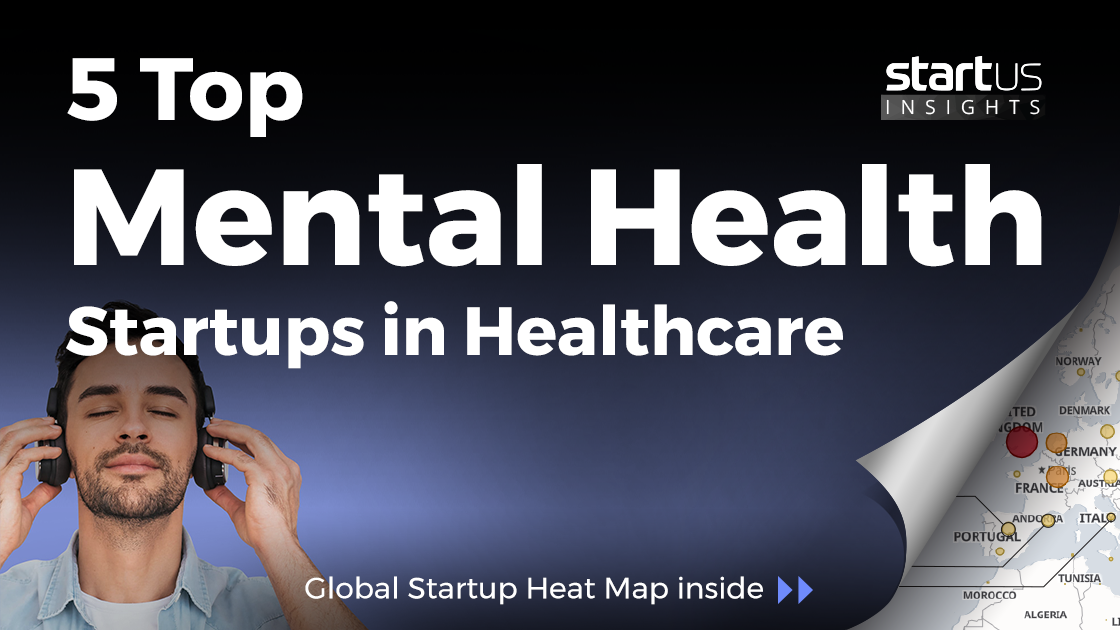Mental health has become an increasingly important issue in the modern world, with more people recognizing the significance of emotional well-being and mental wellness. The COVID-19 pandemic accelerated the shift toward digital health solutions, and as we approach 2025, the mental health technology (mental health tech) sector is poised for remarkable growth. Mental health tech startups are developing innovative solutions that leverage AI, automation, digital platforms, and mobile applications to address the diverse challenges people face regarding mental health.
In 2025, mental health will no longer be just a sector of interest—it will be an essential part of how businesses and individuals approach well-being. Entrepreneurs looking to enter this space will have many opportunities to create solutions that benefit both individuals and corporations. From AI-driven therapies to mental health assessments, the possibilities for mental health tech startups are vast. Below, we explore the most exciting and innovative mental health tech startup ideas set to transform the industry in 2025.
AI-Driven Mental Health Therapies
Artificial Intelligence (AI) has already started making waves in industries like healthcare, e-commerce, and finance, but its application in mental health is still in its early stages. By 2025, AI-powered platforms will likely become essential tools for diagnosing and treating mental health conditions. AI-driven therapies can provide personalized support by using data collected from user interactions to tailor treatment plans for anxiety, depression, PTSD, and other mental health disorders.
One of the most promising areas for mental health tech startups is the development of AI-powered chatbots and virtual therapists. These tools can offer a convenient and cost-effective alternative to traditional in-person therapy sessions, especially for those who may not have easy access to mental health services. By using natural language processing (NLP) and machine learning, these virtual therapists can provide real-time emotional support and recommend resources such as self-help tools, meditation guides, or cognitive behavioral therapy (CBT) exercises.
Entrepreneurs looking to capitalize on AI and automation in mental health can develop platforms that not only offer personalized therapy but also integrate with wearable devices to monitor a user’s emotional state in real-time. This can create a comprehensive mental health management system that adjusts the treatment plan based on the individual’s emotional fluctuations, helping to mitigate the effects of mental health challenges before they escalate.
Mobile Apps for Daily Mental Health Tracking
One of the most popular trends in the mental health tech space is the development of mobile apps that allow users to track their mental health on a daily basis. These apps can help individuals monitor their moods, anxiety levels, sleep patterns, and overall emotional well-being. By collecting this data, users can gain a better understanding of their mental health and identify patterns that may indicate a decline in well-being.
In 2025, mobile apps will likely become even more sophisticated, using AI and machine learning algorithms to detect early signs of mental health issues. These apps can offer personalized insights, suggest coping strategies, and even connect users with mental health professionals if necessary. Digital services related to mental health are already becoming a critical part of healthcare, and apps focused on daily tracking will continue to play an essential role in offering mental wellness support.
Startups that offer mental health tracking apps will have a massive opportunity to integrate their platforms with wearables, such as fitness trackers and smartwatches, to provide more accurate data. By integrating biometric feedback from wearables, these apps can assess a person’s physical activity levels, sleep patterns, and even heart rate, helping users correlate how their lifestyle impacts their mental health.

Online Mental Health Communities and Peer Support
For many individuals, connecting with others who share similar experiences can be a critical component of mental health healing. Peer support networks are one of the most effective ways to help people feel understood and supported during their mental health journey. As stigma around mental health continues to decrease, the demand for online communities dedicated to mental wellness is expected to grow.
Mental health tech startups can create online platforms that offer a safe and confidential space for individuals to connect with others facing similar challenges. These platforms can also offer group therapy sessions, support groups, and peer-led discussions. With the rise of online business opportunities, a startup focused on building virtual mental health communities will be well-positioned for growth.
In 2025, we expect to see more startups focusing on creating these online communities, with a focus on inclusivity and accessibility. AI can also play a role in moderating these communities, ensuring that conversations remain safe and supportive. Additionally, businesses can partner with digital marketing experts to reach wider audiences and promote mental health awareness.
Teletherapy Platforms for Accessible Counseling
Teletherapy has become an essential part of the mental health landscape, particularly during the pandemic, and its demand is expected to continue growing in 2025. Online therapy platforms allow users to connect with licensed mental health professionals from the comfort of their own homes. This is particularly valuable for individuals who face barriers to traditional in-person therapy, such as those living in rural areas or individuals with busy schedules.
In 2025, teletherapy platforms will likely become even more advanced, offering not only video consultations but also text-based therapy, voice calls, and virtual group therapy sessions. These platforms can also integrate AI to provide initial assessments before the user connects with a licensed professional. AI could also suggest therapeutic exercises, journaling prompts, and other resources tailored to the user’s needs. Entrepreneurs can build startup ideas around teletherapy solutions, creating platforms that match users with the right therapists based on their preferences, mental health conditions, and goals.
Teletherapy platforms are also perfect for corporate wellness programs. Many companies are integrating mental health services into their employee benefits package, offering teletherapy as a resource for stress management, burnout prevention, and overall emotional wellness. Sustainable businesses in the mental health tech space can focus on these corporate wellness offerings, helping organizations support their employees’ mental health with the convenience of online services.
Mental Health Tech for Workplace Well-Being
The importance of mental health in the workplace has gained significant attention in recent years, with more businesses focusing on employee well-being. In 2025, mental health tech startups will be crucial in offering solutions that support workplace well-being, from stress management tools to employee wellness programs.
Startups can create AI-powered platforms that provide employees with stress-relieving activities, virtual mental health support, and mindfulness exercises. These platforms can also help employers identify signs of burnout, anxiety, or depression within their teams, enabling them to provide timely interventions before problems escalate. Startups can combine paid advertising and AI technologies to promote workplace mental health programs, targeting specific industries or job functions that experience higher levels of stress and mental health challenges.
For example, a platform could provide a suite of digital tools for companies to track employee mental health, monitor overall well-being, and offer personalized support. The platform could integrate with existing HR systems to provide insights into how mental health impacts productivity and engagement, helping businesses improve their mental health policies and practices.
Wearable Devices for Mental Health Monitoring
Wearable devices have already transformed the fitness industry, and in 2025, we can expect wearable tech to play a significant role in mental health monitoring. These devices can track a variety of biometric data, such as heart rate, sleep patterns, and activity levels, which can be indicative of a person’s mental state.
Mental health tech startups can leverage wearable technology to create tools that help users understand the physical manifestations of stress and anxiety. For example, a wearable device could detect changes in heart rate or body temperature and alert the user that they may be experiencing heightened stress levels. Wearables can also track the effectiveness of various coping strategies, such as deep breathing exercises, mindfulness, or physical activity.
By integrating wearable devices with e-commerce innovations, startups can create seamless online shopping experiences that provide consumers with mental wellness products tailored to their needs. This could include purchasing wearable devices, mental health apps, or other wellness products directly through integrated e-commerce platforms.
Conclusion
The mental health tech industry is on the verge of a massive transformation in 2025, with countless opportunities for entrepreneurs to create innovative solutions that address the growing need for mental health services. From AI-driven therapies and mobile apps for daily mental health tracking to teletherapy platforms and wearable devices, the possibilities for mental health tech startups are vast.
As more people and businesses recognize the importance of mental wellness, there is a significant opportunity to develop solutions that help individuals manage their mental health more effectively. By leveraging emerging technologies such as AI, automation, and wearable devices, entrepreneurs can create products that make mental health support more accessible, personalized, and convenient for people worldwide. The future of mental health tech is bright, and those who enter this field in 2025 have the chance to shape the future of mental wellness for years to come.

